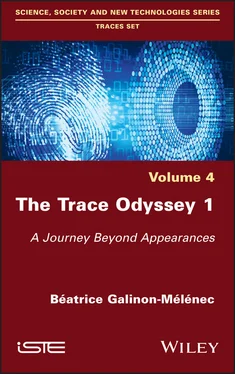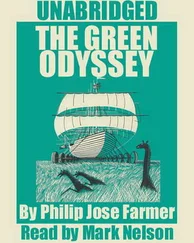52 52 This term is translated more generally as Ichnos-Anthropos (ichnos: trace; anthropos: human). The hyphen (-) here, as in corps-trace and signe-trace, distinguishes this terminology from other terms and refers the reader to the systemic paradigms it symbolizes.
53 53 For our part, we rely on the publications of Augustin Berque and we consider that the environment is a space within which the conditions of life are permanently determined and reciprocally generated in a “flow of relations that inseparably link subjects to objects, and these likewise to each other”, see Berque A., Écoumène, introduction à l’étude des milieux humains, Belin, Paris, 2000.
54 54 Traces of a person’s milieu are present in them through their language, their culture, their way of approaching reality. Traces of the history of their species as well (the genetic structure and the reproduction system of their species are in them).
55 55 Op. cit. p. 368–369.
56 56 See the conclusion in Chapter 3.
57 57 The person’s body is also continuously in contact with the Real, whose existence human beings are not aware of.
58 58 By using the term différance with an “a” instead of the usual “e” in the spelling “difference”, we wish to refer the reader to the text by Derrida (1967).
59 59 The reference here is Foucault’s definition: “Hypnomnemata, in the technical sense, could be account books, public registers, individual notebooks serving as memory aids”. See Foucault (2001, p. 1237).
60 60 The French term “reliance” has two meanings. It implies the action of reconnecting (relier in French), or it means to connect both oneself and the results of this connection of the Self. In sociology, the reliance is defined as the creation of links among separated social actors, of which at least one is a human being. For Edgar Morin (1996), a well-known French philosopher, the reliance is inseparable to the interaction of complex systems.
61 61 See Chapter 3, Figure 3.3: “The role of humans in the digital ecosystem apparatus”.
62 62 The Trace Odyssey 1 also provides an opportunity to discover well-known authors in anthropology, philosophy, sociology, psychology and general human sciences (including Bateson, Barthes, Bourdieu, Derrida, Eco, Goffman, Hall, Kant, Jonas, Peirce, Ricoeur, Varela and Thomson, Watsuji, Watzlawick, etc
Конец ознакомительного фрагмента.
Текст предоставлен ООО «ЛитРес».
Прочитайте эту книгу целиком, купив полную легальную версию на ЛитРес.
Безопасно оплатить книгу можно банковской картой Visa, MasterCard, Maestro, со счета мобильного телефона, с платежного терминала, в салоне МТС или Связной, через PayPal, WebMoney, Яндекс.Деньги, QIWI Кошелек, бонусными картами или другим удобным Вам способом.












